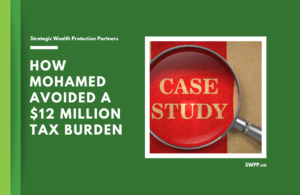
Can a Sole Beneficiary Be an Executor of a Will in Canada?
In Canada, can the sole beneficiary be an executor of a will as well? Yes, a beneficiary can also be an executor of a will in Canada.

In Canada, can the sole beneficiary be an executor of a will as well? Yes, a beneficiary can also be an executor of a will in Canada.

Mohamed, a 75-year-old real estate investor based in Ontario, owns two real estate holding companies along with various personal assets.

Life insurance is often worth it if you have people who depend on your income, you own a business, or you want to protect your estate. The value depends on your financial goals, life stage, and whether the structure of your policy aligns with those goals.

Bill, a 55-year-old real estate investor, reached out to SWPP after reading about living trusts online.

Is life insurance taxable? Life insurance payouts are generally not taxable in Canada if they are paid directly to a named beneficiary.

No one wants a tax surprise after death. Learn how Canada’s “deemed disposition” rules impact your estate—and how smart planning protects your family.

When you’re faced with the possibility of inheriting money or property, one of the first questions that likely comes up is, “Is inheritance taxable in Canada?”

Estate planning in blended families is especially sensitive because your children’s inheritance could unintentionally end up in someone else’s hands.

In Canada, a living will is a type of advance directive that outlines your wishes for medical care if you become unable to communicate or make decisions for yourself.

Setting up a trust in Ontario begins with a clear purpose and intention. What do you want the trust to achieve?